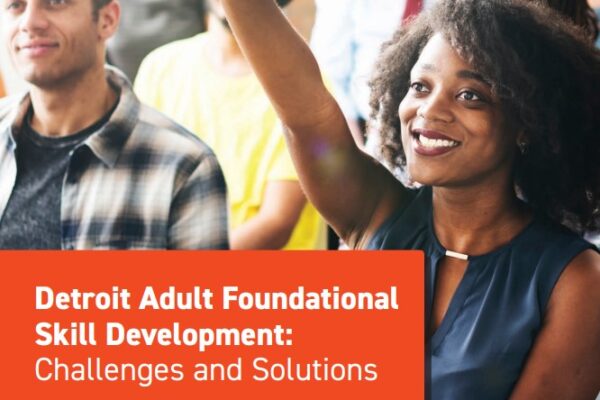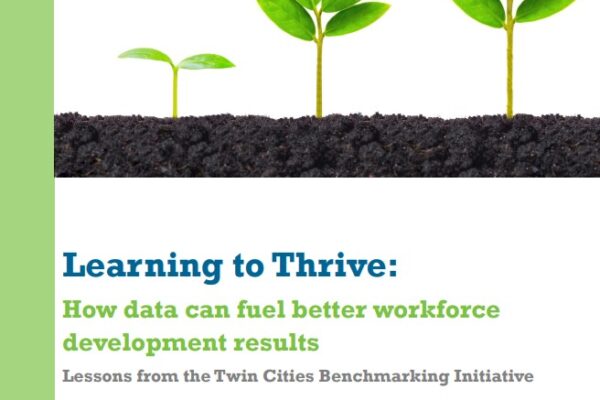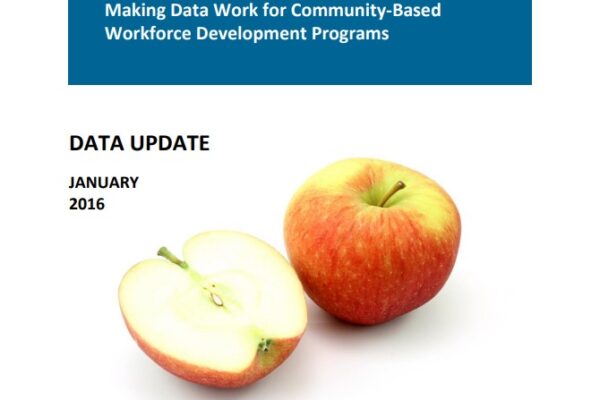What the Detroit Economic Mobility Grants Can Teach Us
The Detroit Economic Mobility Grant initiative demonstrated that adult education and occupational training programs can work together to substantially improve learner results by accelerating instruction and contextualizing it to work. Ten organizations or pairs of workforce and adult education organizations received a total of nearly $1 million from 2018-2020 to pilot four evidence-based models for more effectively helping adults gain foundational skills crucial to employment opportunities.

Detroit Adult Foundational Skill Development: Challenges and Solutions
This report examines the state of foundational skills in Detroit as well as four evidence-based approaches being employed elsewhere in the country that produce improved results.
Applying Demand and Supply Signals
In April 2017, Connecting Credentials convened five workgroups of diverse leaders in credentialing reform to tackle particularly challenging aspects of achieving the vision of a learner-centered credentialing ecosystem articulated in the 2016 From National Dialogue to Collective Action: Building Learning-Based Credentialing Systems.

Learning to Thrive: How Data Can Fuel Better Workforce Development Results
This report describes the multi-year Twin Cities Benchmarking Initiative: its design and approach to capacity building, the role of funders in nurturing culture change, and the results achieved. It highlights the examples, lessons—and promise—that findings hold for workforce development nonprofits and their funders in other locales across the nation.
Preliminary Asset Map for SE MI AESS Cluster
AESSI Battery Show Booth Brochure
Detroit’s Untapped Talent: Partnerships and Pathways for Success
This report, the second of a two part series, is the culmination of a research effort to create a workforce system “map” which would inform a comprehensive and data-driven understanding of Detroit’s workforce development assets, opportunities, and challenges.

Apples to Apples: 2016 Data Update
This report provides information that will assist funders, policy makers and practitioners in understanding what “good” results are for different types of programs. Similar to the larger workforce field, the data represent a wide variety of populations served, strategies used and
organizational contexts.
Detroit’s Untapped Talent: Jobs and On-Ramps Needed
This report is the first of a two-part series detailing the findings from research conducted by CSW. It includes information about the complexities of Detroit’s resident labor pool, Detroit’s industry mix, and the mix of jobs and skills needed for the city to prosper.
Employing Opportunity Youth
Chronic disconnection affects a significant population of young people with far-reaching social and economic costs. These disconnected or “opportunity” youth are defined as 16-24 year olds who are not connected to school or work, and who have one or more barriers to entry into both. These young people are in very serious danger of being left behind permanently, often facing long-term unemployment, low or no income, and/or incarceration. The consequences of not helping these young people succeed are immediate, pressing, and will continue to reverberate both socially and economically until critical steps are taken to increase reconnection and sustainable employment.
Upskill/Backfill Strategies: Advancing Incumbent Workers and Opening Opportunities for Job Seekers
In response to difficult economic conditions during the 2007-2009 recession, the U.S. Department of Labor funded ARRA grantees focused on training unemployed and dislocated workers in emerging and growing sectors to advance incumbent workers and open entry-level positions for unemployed job seekers. This approach is known as upskill/backfill. This report summarizes key lessons learned and documents benefits. These include job seekers benefiting from an increase in capacity of a company’s operations and ability to hire; employers benefiting from training that reduced costs by increasing worker productivity and reducing staff turnover; and communities benefiting from the preservation of jobs and the increasing income of newly trained workers.

Advances in Workforce Policy: Insights from the American Recovery and Reinvestment Act Training Grants
In response to difficult economic conditions during the 2007-2009 recession, the U.S. Department of Labor funded 152 grantees across the country to train nearly 200,000 Americans in emerging and growing sectors such as health care and green jobs. This report examines the 50 top-tier ARRA grantees. Against the backdrop of the 2007–2009 recession, some grantees had difficulty achieving their goals, but many found ways to adapt to the changing economic environment and meet their targets for placing newly trained individuals in jobs.

